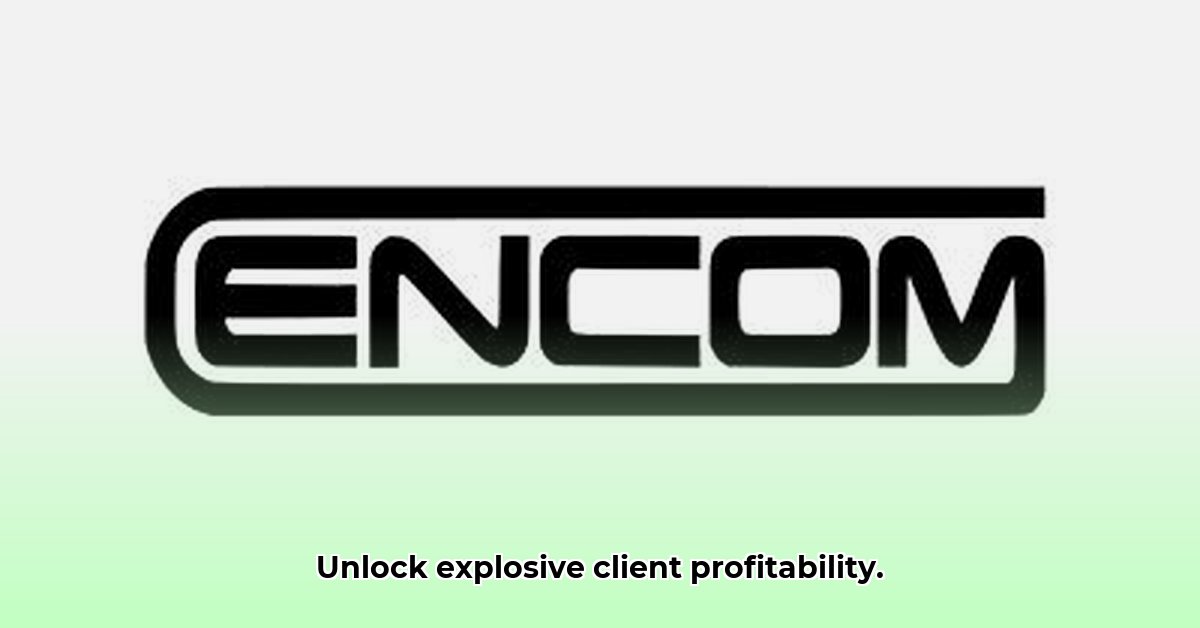
The IT consulting landscape is rapidly evolving. Businesses no longer seek simple technical fixes; they require strategic partners capable of driving long-term growth through integrated technology solutions. Encom Inc. exemplifies this shift, transforming its business model to offer a holistic, full-service approach. This article analyzes Encom's transition, explores the underlying industry trends, and provides actionable insights for both IT firms and clients seeking to maximize the return on investment (ROI) from IT consulting services.
Encom Inc.'s Transformation: From Tech Fixes to Strategic Partnerships
Encom Inc.'s success stems from its decisive move beyond traditional IT consulting. Instead of addressing individual technical issues in isolation, Encom now delivers comprehensive, end-to-end solutions. This shift mirrors a broader industry trend: businesses increasingly recognize technology as an integral component of their overall strategic goals, not merely a support function. While Encom's website provides a glimpse into their services, a more thorough understanding requires examining the broader industry context and the implications of this strategic repositioning.
The Driving Forces: Industry Trends Shaping Holistic IT Consulting
Several factors fuel the industry-wide adoption of holistic IT consulting models. These include:
- Increased Client Demand for Integrated Solutions: Businesses are seeking unified solutions that bridge technology, operations, and strategy, eliminating the silos that hinder efficiency and innovation.
- Strategic Planning as a Core Need: Clients are demanding proactive IT strategies that align with their business objectives, enabling them to anticipate challenges and capitalize on emerging opportunities.
- Collaborative Engagement Models: The shift reflects a preference for collaborative partnerships, where IT consultants work hand-in-hand with clients to develop and implement customized solutions. Clients need partners who understand their business intimately and can seamlessly integrate technology to support their unique needs.
This move towards holistic services directly impacts client profitability by optimizing operational efficiency, enhancing security posture, and fostering innovation.
Measuring the ROI of Holistic IT Consulting
Traditional ROI calculations are insufficient for evaluating holistic IT consulting, which delivers both tangible and intangible benefits. A robust ROI measurement must incorporate:
- Financial Metrics: Cost reduction, revenue growth, improved profitability.
- Operational Metrics: Efficiency gains, reduced downtime, enhanced scalability.
- Security Metrics: Reduced security incidents, improved compliance, stronger data protection.
- Qualitative Metrics: Client satisfaction, employee productivity, improved collaboration.
This multifaceted approach provides a more comprehensive evaluation of the value proposition.
Risk Mitigation in a Holistic Approach
While holistic IT consulting offers considerable benefits, several risks must be addressed:
- Client Disappointment: Clear communication, realistic timelines, and measurable goals minimize this risk.
- Intense Competition: Specialization, strong client relationships, and consistent quality elevate competitive standing.
- Talent Acquisition: Investing in employee training, fostering a positive work environment, and offering competitive compensation ensures access to skilled professionals.
- Cybersecurity Threats: Robust security measures, regular audits, and a comprehensive incident response plan are essential.
Proactive risk management is vital for mitigating these potential challenges.
Navigating the Regulatory Landscape
The regulatory environment for IT consulting is complex and dynamic. Compliance with data privacy regulations (e.g., GDPR, CCPA), cybersecurity standards (e.g., NIST, ISO 27001), and evolving industry-specific rules is essential for firms like Encom. Ongoing monitoring and adaptation are necessary to navigate this evolving landscape.
Conclusion: The Future of Holistic IT Consulting
Encom's transformation reflects a profound shift in the IT consulting industry. The future will favor firms that offer comprehensive, integrated solutions, fostering long-term strategic partnerships with clients. The ability to demonstrate a clear and quantifiable ROI from these holistic services will be paramount for success, requiring robust measurement methodologies and a commitment to proactive risk management. This shift necessitates a paradigm change for both IT providers and their clients, demanding a focus on collaboration, comprehensive planning, and ongoing adaptation to the evolving technological and regulatory environments.